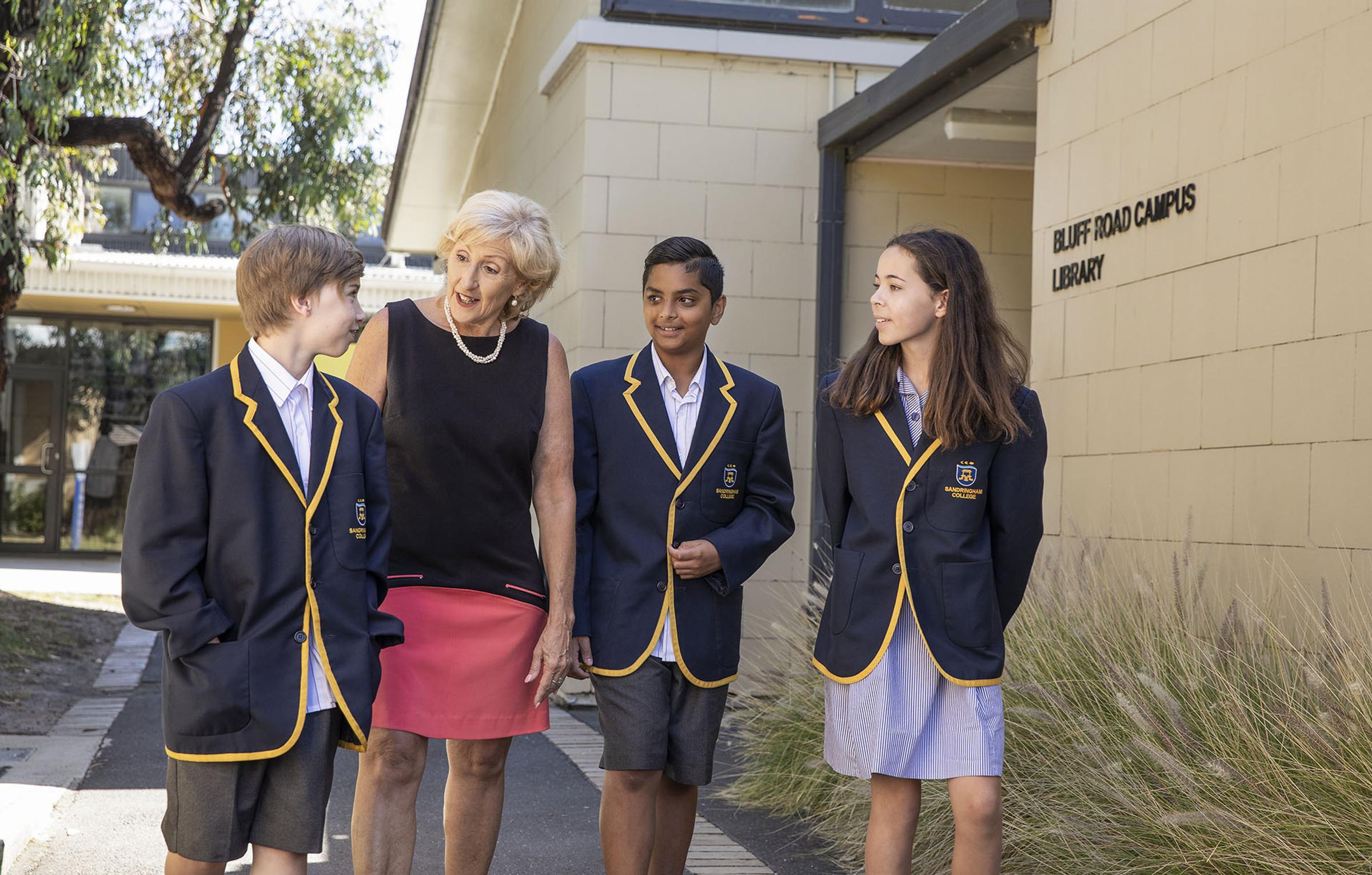Learning from history
Ms Vivienne McElwee, Head of 7-9 Campus

Learning from history
Ms Vivienne McElwee, Head of 7-9 Campus
Having recently returned to school from being on Long Service Leave, I found myself reflecting on how privileged I was to have had the opportunity to experience two incredible cultures in Bali and the Northern Territory during this time. Whilst both cultures are richly intricate, the distinctions between them highlight the diverse ways in which societies develop and evolve based on their unique histories and environments. Whilst both Bali and the Northern Territory First Nations hold a strong sense of community and share practices that honour their connection to the land, they differ significantly in terms of religious influences, historical backgrounds, and artistic expressions.
As a school we understand that as caretakers of the future generation, you play an integral role in shaping your children's education and values. One crucial aspect of their learning journey is the inclusion and recognition of First Nations history and teachings within our schools, alongside a comprehensive understanding of various historical perspectives. By incorporating these essential components into the curriculum, we provide our students with a well-rounded and holistic view of our nation's and the world's history. In particular, our Djeembana program in year 9 has an important component where Indigenous Cultures in the modern world are unpacked and discussed, then further researched by the students.
Teaching Australia's First Nations history fosters empathy, respect, and a deeper connection to the land we share, while also shedding light on the cultural significance and resilience of Indigenous peoples. Additionally, a diverse range of historical narratives allows our children to appreciate different cultures, viewpoints, and events, nurturing critical thinking and open-mindedness. This knowledge equips them with the tools to become informed and responsible citizens, actively contributing to a more inclusive and harmonious society. Together, we can create a learning environment that embraces the past, acknowledges the present, and builds a brighter, more inclusive future for all.
AUDITIONS AND TRY-OUTS
Saturday August 5th was the Edutest for entry into the 2024 SEAL program for year 7. There were many excited grade six students and their parents with us for the morning to undertake this testing process. The auditions and try-outs for Dance Academy, Sport Academy and Art Academy will soon follow. For our current students who may like to try-out for a place in any of the year 8 or 9 Academies in 2024, we will be holding auditions (Dance), try-outs (Sport) and applications (Art) in term four. Acceptance in any of the academies (other than SEAL) is based on:
Keep an eye out for the dates for these try-outs later this term.
Students identified as having gained a place in SEAL are based in the strength of their data, aptitude, suitability and availability of spaces in the program.
LIFE AND STUDY SKILLS
Life skills and study skills are indispensable pillars of a comprehensive school curriculum, equipping students with the essential tools they need to navigate both their academic journey and the challenges of real-world scenarios.
This term:
-Year 7 have been looking at Study Planners, Growth Mindset, resilience and goal setting.
-Year 8 have focussed on Mental Health Toolbox, memory and mnemonics and plagiarism.
-Year 9 have looked at Road Safety, goal setting for semester two and are now looking at Internet and the Law.
Early next term, all year levels will commence exam strategies, in preparation for the examinations in term four.
PARKING
Just a reminder that the front car park, accessible from the Bluff Road entrance of the school cannot to be used to drop off and pickup students during the day. This is often creating a safety risk for students and creates congestion in this small space. Parents who need to come in during the day to sign a student in or out or to attend an appointment are more than welcome to park in the front carpark, for their convenience.
WWRY
It has been a pleasure to watch the development of our College Production We Will Rock You at rehearsals, which are now in full swing. This is such a fantastic opportunity for all of our students from year 7 to 12 to come together, whether it be as an actor, singer, dancer, tech crew, set constructor, costume assistant or working with our lighting designer.
We are also very lucky to have the support and expertise of many Alumni and parent helpers, who give so much of their time to help make this the great show that it will be. As always, we must thank our amazing staff, Prue, Amy, Matt, Laura and Heather who give so much of their time to create this wonderful opportunity for our students. Please check the Performing Arts tab of this newsletter for information regarding tickets to this amazing show.
Vivienne McElwee
Campus Principal